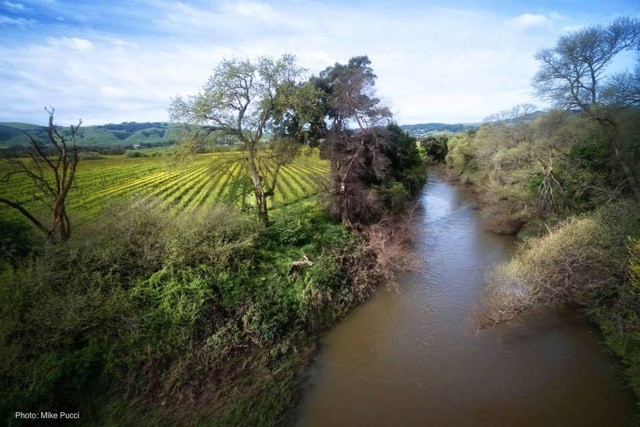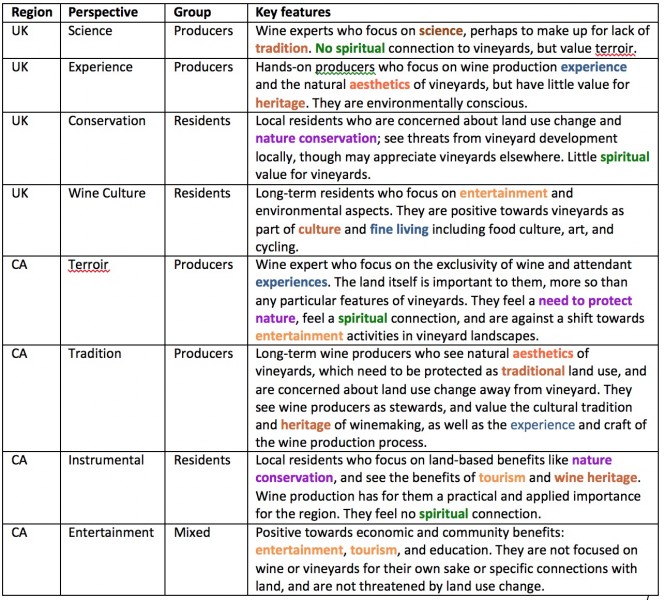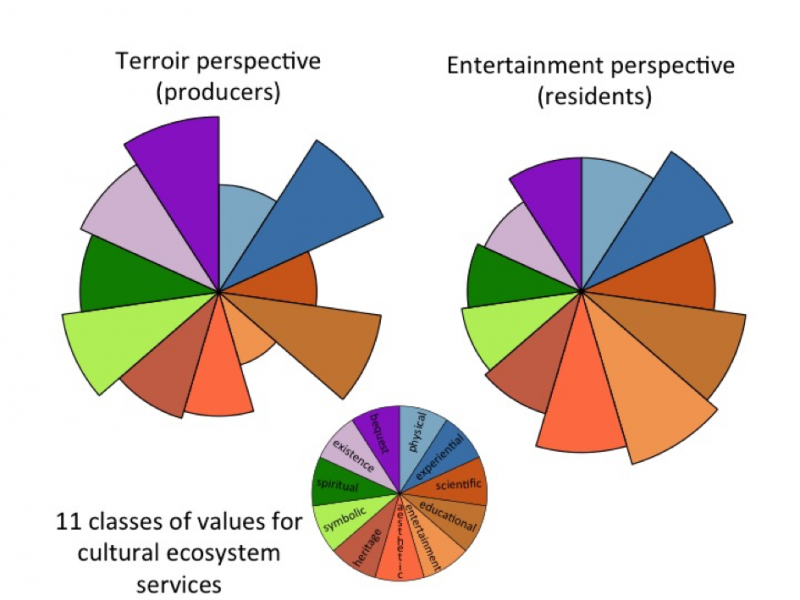
More than wine: Perspectives on local values and vineyard landscapes
By Klara Winkler and Kimberly A. Nicholas
This article is also available in Spanish, German, Portuguese and French
Vineyard landscapes provide not only wine, but also a variety of benefits that residents and visitors value. These landscapes function as trademarks for their areas, attract visitors, inspire art, serve as places for spiritual activities like weddings, create local identity, and represent cultural heritage and traditions. These aspects are considered cultural ecosystem services: the many ways that nature provides us with enjoyment and fulfilment, in addition to providing basic materials like food and water, and essential functions like climate regulation.
Everyone has experienced this cultural benefit from nature, from a child gleefully splashing in a puddle, to great writers and artists inspired by their natural surroundings. However, these benefits can be difficult to measure, and until now, no study had comprehensively assessed the non-economic benefits of vineyard landscapes.
For the first time, our new study, part of the European research project OPERAs, has measured these values in Sonoma and Napa, California, and in Southeast England, finding that wine producers and residents can be identified in distinct groups based on their widely varying values and preferences for the vineyard landscape surrounding them.
To reveal these values, we surveyed local residents and wine producers, and asked them to rank statements representing different cultural ecosystem services provided by vineyards from academic literature and wine producers’ websites, using an approach called Q-Methodology. Eight dominant perspectives on vineyard landscapes emerged (Table 1).
Comparing the regions, we conclude that in England, vineyards represent a sometimes unwelcome development to residents who value Conservation of the current land use (Table 1), while in California they can represent conservation of nature and tradition. In England, wine producers focus on their professional interaction with the landscape through the Science or Experience of wine production, and are generally more positive about vineyard landscapes than residents (Table 1). Wine producers in California with the Tradition perspective value cultural ecosystem services directly connected with wine production, such as the uniqueness of wine and the vineyard landscape, while residents emphasize the benefits of nature conservation in vineyards and wine tourism or Entertainment opportunities in the region.

Table 1. Eight perspectives on vineyard landscapes identified from wine producers and residents in Southeast England (UK) and California and Napa, California (CA) surveyed in this study. The perspectives were identified from a statistical analysis of participant’s rating of their agreement with 44 statements representing 11 classes of cultural ecosystem services (shown in color). We coined the perspective name based on the key features shown.
In addition, we found that wine producers and local residents have different values for vineyard landscapes. For example, Californian wine producers highly value the particular taste or Terroir of wine in their region (Figure 1), and see themselves as stewards of a Tradition that should be conserved for the future. In contrast, many local residents prefer the services beyond direct wine production, but shaped by vineyard landscapes: for example, Entertainment activities such as wine tastings, festivals, or balloon rides (Figure 1). They also enjoy the aesthetics of vineyard landscapes and educational aspects like wine tours. This shows that personal experience in and everyday use of a landscape shape how it is valued, and such values can evolve over time.

Figure 1. An illustration of two out of the eight perspectives we identified for local residents and wine producers from this research, based on analysis of participants’ responses to a survey where they sorted statements from academic literature and winery websites on cultural ecosystem services from vineyards. Each wedge of the pie represents how strongly the perspective valued that cultural ecosystem service. Producers in California held the “Terroir” perspective, and strongly valued bequest (future generations), experiential, and educational activities, with little value for entertainment. The most highly rated statement in this perspective was “Wine should be a bit like a fingerprint taken from the land- a unique expression of what the grapevine can achieve.” The Entertainment perspective was held by residents in California, and valued benefits like tourism and entertainment, with the most highly ranked statement “Vineyards attract valuable entertainment activities like festivals and balloon rides.”
This study provides a framework for local governments and vintners to use when considering land use change. We showed that people prefer different services from vineyards, and thus have different demands for the landscape depending on their personal experiences and their local context. Thus, government or management decisions on vineyards affect not only grapes, but also local communities. When changing the use of agricultural land, land managers need to consider local values and how people living in the area are culturally connected to the landscape.
